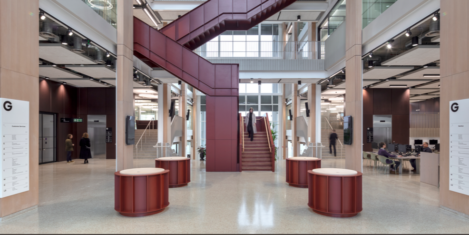March 15, 2023
Office market continues to fail on environmental standards …. say landlords
 A new survey that explores the state of sustainability within the UK office market, jointly commissioned by infinitSpace and The Instant Group, claims that the office market is falling behind on environmental policies. The poll of 250 landlords suggests that almost half (47 percent) of landlords believe the office market is lagging behind other areas of the property sector in implementing/adopting environmental policies. The same number say they can’t ‘go it alone’ with 47 percent of landlords agreeing they need help in shaping environmental policies. At the same time, 84 percent of landlords report a vacancy rate of 30 percent and above as average among their office building portfolio. (more…)
A new survey that explores the state of sustainability within the UK office market, jointly commissioned by infinitSpace and The Instant Group, claims that the office market is falling behind on environmental policies. The poll of 250 landlords suggests that almost half (47 percent) of landlords believe the office market is lagging behind other areas of the property sector in implementing/adopting environmental policies. The same number say they can’t ‘go it alone’ with 47 percent of landlords agreeing they need help in shaping environmental policies. At the same time, 84 percent of landlords report a vacancy rate of 30 percent and above as average among their office building portfolio. (more…)













 The leadership pipeline for women has hollowed out in the middle, according to a new study “
The leadership pipeline for women has hollowed out in the middle, according to a new study “






















March 9, 2023
Progress depends on heterodox thought and difficult questions
by Mark Eltringham • Comment, Facilities management, Wellbeing, Workplace design
(more…)